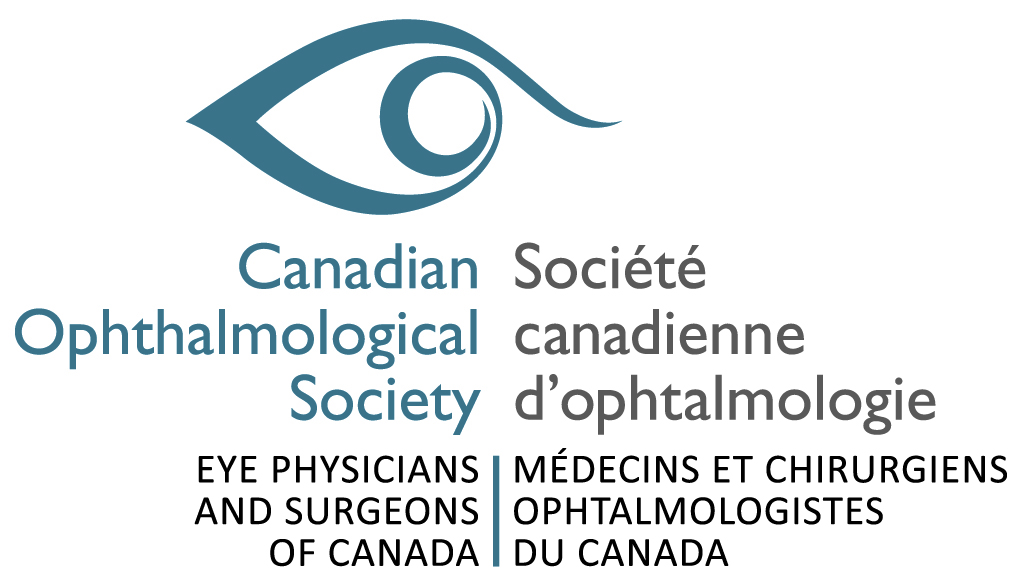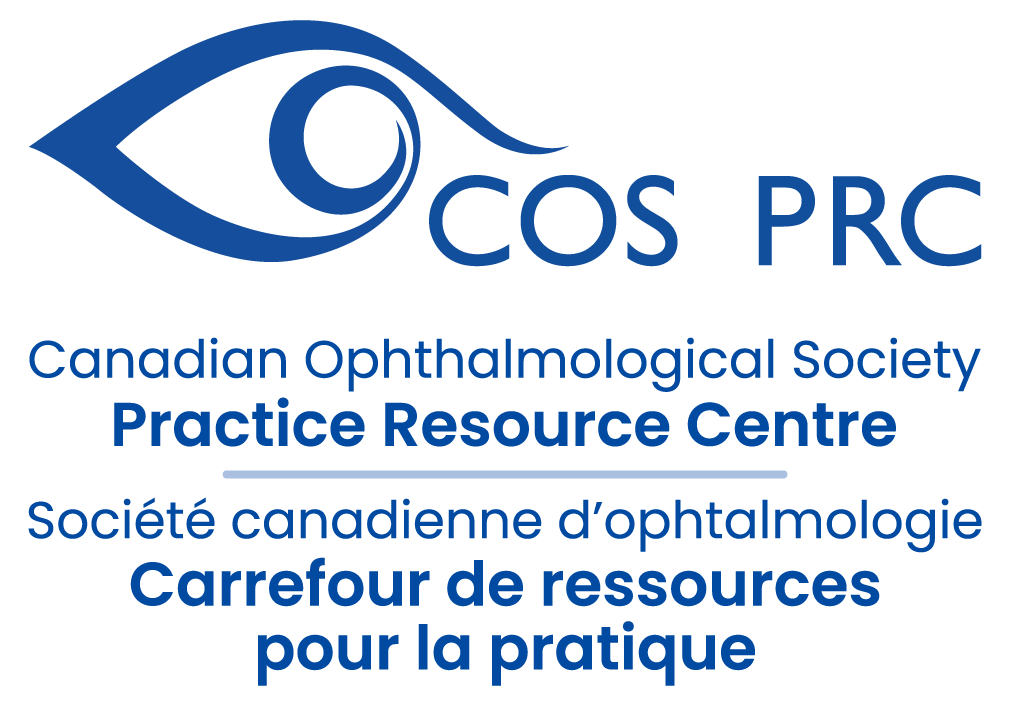COS – Ophthalmic Surgery Prioritization
Ophthalmic Surgery Prioritization
Updated, May 28, 2020

Hospitals and ambulatory surgical centers are facing a large backlog of “elective” surgical procedures due to cancellations during the COVID-19 pandemic. The continuation of ophthalmic surgical care is vital to prevent vision loss and consequent disability in the Canadian population. The impact of visual impairment (VI) on productivity, mental health , fall risk, childhood development, and quality of life metrics has been well established. The effect of VI is not limited to individuals and often has a wider impact on the patient’s family and society as a whole.
Objectives
- To provide a framework for prioritization of individual ophthalmic surgeon cases that can be applicable across Canada and across ophthalmology subspecialties during COVID.
- To advocate for ophthalmic surgery within hospital setting
- To have the ability to audit/compare across ophthalmic surgeons for quality
Read the full COS document – Ophthalmic Surgery Prioritization
Checklist on Reopening Ophthalmology Clinics during COVID-19
May 15, 2020

The COS has developed this checklist on reopening ophthalmology clinics during COVID-19. This document has been reviewed and endorsed by our affiliate subspecialty societies, provincial societies and ACUPO.
Read the full checklist on reopening ophthalmology clinics during COVID-19
Mise à jour sur le coronavirus (COVID-19)
Détails du webinaire
Date: Lundi, 11 mai 2020
Heure : 12 h HAE
S’inscrire au webinaire Vous devez au préalable vous inscrire ici.
Conférencière Dre Diane Francoeur Présidente, Fédération des médecins spécialistes du Québec
Modérateur
- Dr Sam Daniel Directeur, Direction du développement professionnel continu
- Jacques Tétrault, Directeur Affaires publiques et Communications, FMSQ
Objectifs d’apprentissage
À la fin de cette conférence, les participants seront en mesure :
- Décrire la situation actuelle concernant la pandémie de COVID-19;
- Discuter des plus récentes recommandations concernant la prise en charge du COVID-19;
- Ajuster sa pratique afin de répondre à ses responsabilités personnelles et professionnelles.
Disinfection Recommendations from the Manufacturers: Haag-Streit and Zeiss
May 5, 2020
Guidance During COVID-19: Disinfection Recommendations from the Manufacturers – Haag-Streit and Zeiss
Access Details
- COVID-19 guidance: Cleaning your HFA Perimeter
- Considerations on How to Clean Perimeters to Lower the Risk of COVID 19 Transmissions
- Cleaning Guidance for the Humphrey Field Analyzer (HFA)
Recommendations for Conducting Vitreoretinal Surgery During the COVID-19 Pandemic
April 30, 2020
The CRS Executive has reviewed and supports the recommendations of the American Society of Retinal Specialists (ASRS) for conducting vitreoretinal surgery during the COVID-19 pandemic. The CRS endorses these ASRS recommendations for application within the Canadian context.
Read the full ASRS recommendations for conducting vitreoretinal surgery during the COVID-19 pandemic

Canadian Society of Oculoplastic Surgery Position Statement: Guidelines on Personal Protective Equipment (PPE) during COVID-19 Pandemic for Oculoplastic and Orbital Surgery
April 28, 2020
Guidelines on Personal Protective Equipment (PPE) during COVID-19 Pandemic for Oculoplastic and Orbital Surgery


Background
The Canadian Society of Oculoplastic Surgery has evaluated the current literature assessing the risk to ophthalmologists who perform oculoplastics procedures during and after the current pandemic. Using the best evidence available, guidelines on the minimum personal protective equipment that surgeons should employ were developed. The attached statement has been endorsed by the COS Board of Directors. These comments and recommendations are based on the “conditions on the ground” that exist today at the time of this writing.
Access Details
Read the full position statement from the Canadian Society of Oculoplastic Surgery
International Uveitis Study Group Document Collection About the Care of Uveitis Patients in the COVID-19 Pandemic

Additional Considerations to Help Manage the Anti-VEGF Injection Burden during the COVID-19 Pandemic
April 4, 2020


Background
At the Association of Canadian University Professor of Ophthalmology (ACUPO) teleconference on March 24, 2020, Canadian Department Heads were interested in developing recommendations to assist balancing crucial reductions in anti-VEGF treatment volumes, driven by the COVID-19 virus, with essential treatments still needed for sight preservation. Following a literature review focusing on randomized clinical trials, the following recommendations were developed. Subsequently, the document was reviewed by ACUPO and the Canadian Ophthalmological Society (COS) for feedback.
This document Additional Considerations to Help Manage the Anti-VEGF Injection Burden during the COVID-19 Pandemic is supplementary to and expands on the foundational CRS March 19, 2020 Canadian Retina Society (CRS) Position Statement on Intravitreal Injections and the Management of Retinal Diseases during the COVID-19 Crisis. Both documents can be found on the COS Practice Resource Center. The data and suggestions that follow, as always, do not replace appropriate clinical judgement; clinicians will need to consider the specifics of each patient’s unique ocular and systemic health status and provide care that is in the patient’s best interest.
Access Details
Canadian Glaucoma Society Recommendations for Providing Eye Care to Glaucoma Patients During COVID-19 Pandemic
April 16, 2020



Background
The COVID-19 Pandemic has led to widespread implementation of physical isolating measures and cessation of non-urgent medical visits and procedures. This document is to provide guidance to physicians caring for glaucoma patients to help mitigate the risk to patient and care provider while balancing the need for treatment to preserve vision. As this is a rapidly evolving health care crisis, these recommendations may be modified, and we urge all clinicians to use their own best judgement to individually manage patient care with best practices in mind. These recommendations are based upon and supplemental to the March 20, 2020 COS and ACUPO Guidelines for Ophthalmic Care during COVID-19 Pandemic and guidelines from American Academy of Ophthalmology, and the United Kingdom National Health Society guidelines.
Access Details
Read the full recommendations from the Canadian Glaucoma Society.
The Canadian Glaucoma Society Recommendations for Providing Eye Care to Glaucoma Patients During COVID-19 Pandemic was endorsed by the Canadian Ophthalmological Society (COS) and the Association of Canadian University Professors of Ophthalmology (ACUPO) on April 9, 2020.



